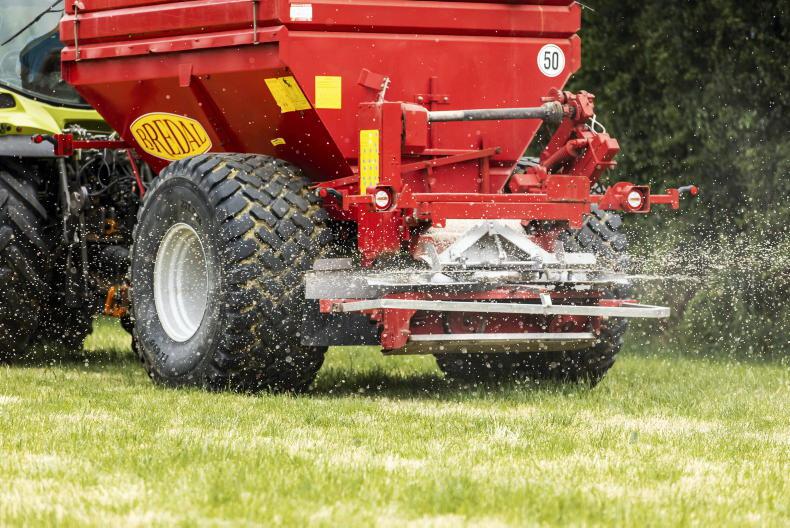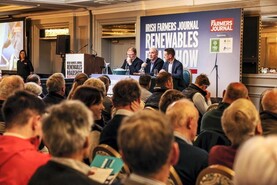Following discussions between the UK government and CF Industries this week, the wheels are turning in the production of fertiliser at the cost of tens of millions to the UK taxpayer.
The agreement is only a stop-gap solution to the wider energy problem which has caused the surge in fertiliser prices and gas prices for food processing as explained in this week’s Irish Farmers Journal.
The government payment is to create a short window that enables the price of gas to the food and drink industry be increased to a level that will enable the producers operate with the higher energy costs required in production.
There is a real risk that farmers will pick up the cost of the squeeze at both ends of the supply chain
The outworking of that situation will inevitably be reflected in even higher fertiliser prices and hyperinflation in the price of CO2 gas for pig and poultry processing and the food packaging industries.
There is a real risk that farmers will pick up the cost of the squeeze at both ends of the supply chain namely on farm fertiliser prices and off-farm factory processing costs.
Short-term problem, long-term issue
Wholesale gas prices which are the core ingredient for much of Europe’s electricity production have always fluctuated.
There are real fears regarding what the short-term consequences this winter will be for household energy bills
However, they are currently in the middle of an upward price surge, having been at rock bottom during last year’s lockdown, leading to prices being more than five times what they were a year ago for wholesale natural gas.
There are real fears regarding what the short-term consequences this winter will be for household energy bills never mind the cost in food processing and on farm fertiliser costs. There is also a longer-term question – where does this leave Europe in relation to reconciling energy demand with the target of net zero by 2050?
Agriculture is a small player
The great hope for meeting Europe’s demand for green energy is wind and solar power.
Yet with all the progress that has been made, the core product required is natural gas. This may be more environment friendly than coal but it is still a fossil fuel.
Nuclear energy presents an option which is politically in many places and in any case current production capacity is reaching the end of its life.
Consumers have long been advised about the need to reduce meat consumption and make further dietary changes to discourage the demand for livestock based protein
Despite this problem building for years, it has largely went under the radar of mainstream media while the spotlight was kept firmly on agriculture. Consumers have long been advised about the need to reduce meat consumption and make further dietary changes to discourage the demand for livestock based protein.
The energy crisis that is developing with the wholesale cost of gas highlights that it is energy consumption that has to be dramatically reduced in pursuit of net zero.
Developing what is considered ‘green energy’ has been shown to have limited capability at this point.
Context
None of this absolves farming from the need to reduce and minimise its greenhouse gas emissions.
It isn’t just consuming less beef that will solve the problem
However, it does provide some context for the debate around the wider reduction of EU emissions.
Tackling climate change isn’t just sitting drinking coffee in disposable cups
It isn’t just consuming less beef that will solve the problem, it will require wearing more clothes and less artificial heat in our houses, less travel by land, air and sea plus a wider reduction in consumer consumption of consumer goods ranging from electronics and fashion. Tackling climate change isn’t just sitting drinking coffee in disposable cups at a global conference pontificating about what agriculture and farming needs to do. Farmers cannot carry the burden on their own.






 This is a subscriber-only article
This is a subscriber-only article











SHARING OPTIONS: